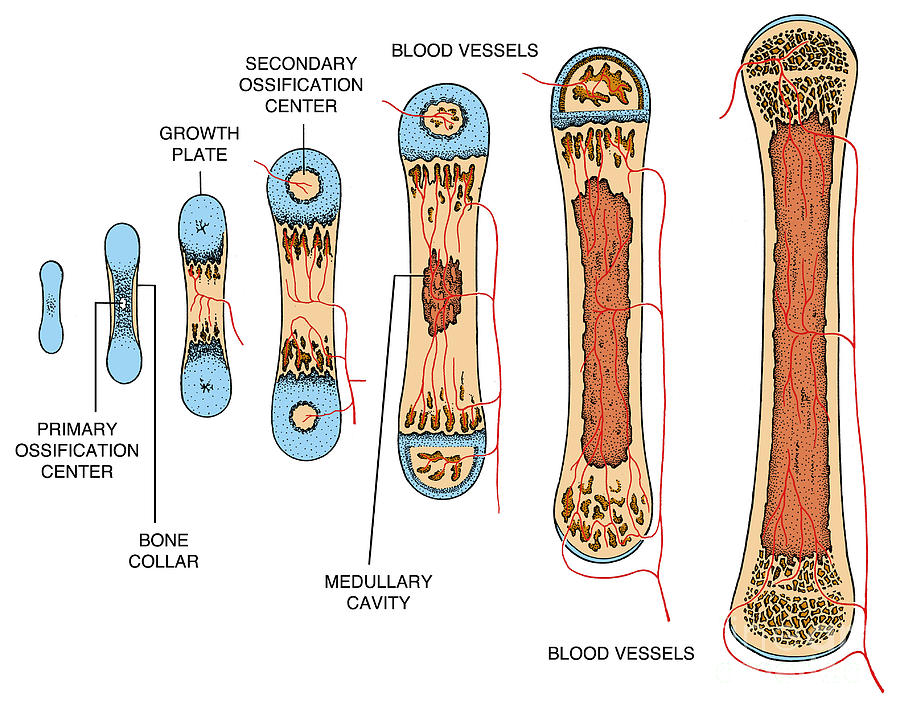 Source: bing.com
Source: bing.comBones are essential for human movement, support, and protection. They begin developing in babies inside the mother’s womb and continue growing and developing until adulthood. It’s fascinating to know how bones grow and develop in babies, and this article will explain it all in detail.
Table of Contents
How Bones Develop In The Womb
Bones start forming in the embryo at about six weeks after conception. At this point, the embryo’s skeleton is made of cartilage, which is a flexible, rubbery tissue. Over the next few weeks, the cartilage starts to harden and turn into bones through a process called ossification. This process involves the deposition of minerals, mainly calcium and phosphorus, into the cartilage matrix. The bones continue to grow and develop throughout fetal development, and by the end of the pregnancy, the baby’s skeleton is fully formed.
Bone Growth And Development In Infancy
After birth, bones continue to grow and develop rapidly. The first year of life is a crucial period for bone development, as the baby’s skeleton doubles in size during this time. The growth of bones in infants is mainly driven by the activity of growth plates, which are areas of cartilage located near the ends of long bones. The growth plates produce new cartilage cells that eventually turn into bone cells, leading to bone growth.
As babies grow and develop, their bones also undergo remodeling, which is the process of breaking down old bone tissue and replacing it with new bone tissue. This process is essential for maintaining bone health and strength throughout life. In infants, bone remodeling is more active than in adults, which allows for rapid bone growth and development.
Factors That Affect Bone Growth And Development
Several factors can influence bone growth and development in babies. Adequate nutrition, especially intake of calcium and vitamin D, is essential for healthy bone growth. Breastfeeding is recommended for infants, as breast milk contains all the nutrients necessary for healthy bone development.
Physical activity is also crucial for bone growth and development in babies. Weight-bearing exercises, such as crawling, walking, and jumping, stimulate bone growth by putting stress on the bones. Lack of physical activity can lead to weak and brittle bones, increasing the risk of fractures and osteoporosis later in life.
Genetics also play a role in bone growth and development. Some babies may have a genetic predisposition to bone disorders such as osteogenesis imperfecta, a condition that causes brittle bones, or achondroplasia, a type of dwarfism caused by abnormal bone growth.
When To Be Concerned
Parents should be aware of signs that may indicate a problem with their baby’s bone growth and development. These signs include delays in reaching developmental milestones such as crawling or walking, frequent fractures, bowing of the legs or arms, and abnormal curvature of the spine.
If you notice any of these signs, it’s crucial to consult a pediatrician or a pediatric orthopedic specialist. Early intervention and treatment can prevent further complications and improve the baby’s quality of life.
Conclusion
In summary, bones undergo a remarkable transformation during fetal development and continue to grow and develop rapidly in infancy. Adequate nutrition, physical activity, and genetics all play a role in bone growth and development. Parents should be aware of signs that may indicate a problem with their baby’s bone growth and development and seek medical attention if necessary.
If you have any questions or concerns about your baby’s bone growth and development, don’t hesitate to talk to your pediatrician or a pediatric orthopedic specialist. With proper care and attention, your baby’s bones can grow and develop to their full potential, setting the foundation for a healthy and active life.
Frequently Asked Questions
Q: How can I ensure my baby’s bones are healthy and strong?
A: Adequate nutrition, physical activity, and regular pediatric check-ups are essential for healthy bone growth and development in babies.
Q: When should I be concerned about my baby’s bone growth and development?
A: Parents should be aware of signs such as frequent fractures, delays in reaching developmental milestones, and abnormal curvature of the spine that may indicate a problem with their baby’s bone growth and development.
Q: Can genetics affect my baby’s bone growth and development?
A: Yes, genetics can play a role in bone growth and development. Some babies may have a genetic predisposition to bone disorders such as osteogenesis imperfecta or achondroplasia.
Q: Is breastfeeding important for healthy bone development in babies?
A: Yes, breastfeeding is recommended for infants as breast milk contains all the nutrients necessary for healthy bone growth.
Q: How can physical activity affect my baby’s bone growth and development?
A: Physical activity, especially weight-bearing exercises, can stimulate bone growth by putting stress on the bones. Lack of physical activity can lead to weak and brittle bones, increasing the risk of fractures and osteoporosis later in life.
